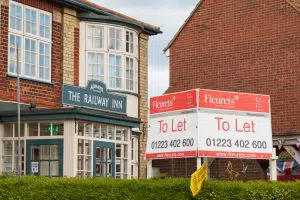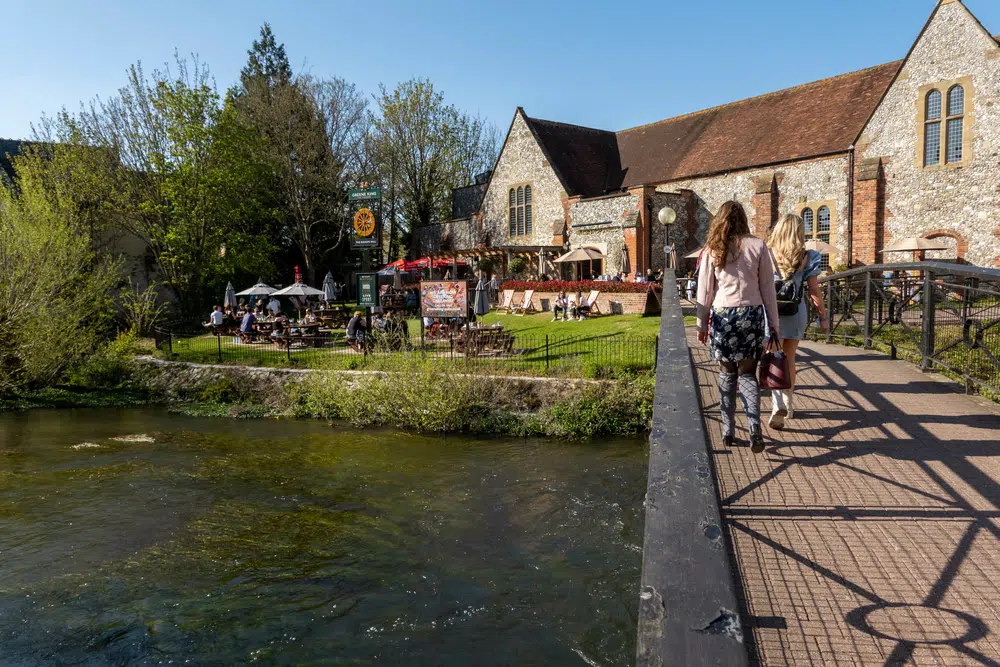
Have you ever dreamed of being a pub owner and ditching the usual rat race of working life? Would you rather have a friendly town pub with a social scene and a sense of community? There are many people who feel the same way.
Despite a decline in pub numbers recently, pubs remain a popular business to buy – and it’s easy to understand when you see the size of the market. Approximately 55,000 pubs operated in the United Kingdom as of 2008.
Though running a pub involves more than just chatting with the locals and pulling a few pints. You must make certain considerations and choices before investing your money.
Things to consider when buying a public house
Pubs are one of the most famous industries in Britain. Pubs are frequented by millions of people. The average adult visits the pub every week, and it’s not just for the alcohol.
People like to meet in pubs. According to Mintel, the market research firm, 38% of pubgoers choose a pub for its atmosphere and 26% for the customers. A mere 20% are concerned about the beer selection. Creating an atmosphere where people want to come together is one of the challenges of making your business a success.
Providing food is one way. In the UK, nine out of ten pubs serve food, making pubs the top choice for eating out. This is a billion-dollar industry. But pub food isn’t limited to steak and kidney pie. There are now French, Italian, and even oriental dishes available.
Additionally, pubs provide a wide range of entertainment. They often hold live music concerts, comedy shows, and quizzes. In other establishments, customers can play pool, darts, or watch sports on big screens or even bowl.
Pubs play a significant role in communities both in towns and in the country, whether they are in residential areas. Pubs are often the focal point of local sporting teams. These businesses often provide other community services such as post offices, doctor’s surgeries, or youth clubs in addition to being big employers in the community.
Here are our top tips for buying and running a successful pub.
Research your target market
Before you can start selling any type of product or service, you need to know who your target market is. Who are the people most likely to buy what you’re selling? What are their needs and wants? What motivates them to make a purchase? Answering these questions is essential to developing a successful marketing strategy.
There are a number of ways to research your target market. You can start by looking at demographic data such as age, gender, location, and income level. You can also look at psychographic data, which tells you about your customers’ lifestyle and personality traits.
Once you have a general idea of who your target market is, you can start conducting more specific research. This might include surveys, focus groups, and interviews. The more you know about your target market, the better equipped you’ll be to sell to them.
Plan your business strategy
As any successful businessperson knows, having a clear and well-thought-out strategy is essential for achieving success. Without a plan, it can be all too easy to get caught up in the day-to-day grind of running a business and lose sight of your long-term goals. That’s why it’s so important to take the time to plan your business strategy before you get started.
There are a few key things you need to keep in mind when planning your strategy. First, you need to clearly define your goals. What do you want to achieve? Be as specific as possible. Second, you need to develop a detailed plan of action. How are you going to achieve your goals? What steps will you take? Third, you need to identify your target market. Who are your potential customers? Once you’ve answered these questions, you’ll have a much better idea of how to proceed.
Of course, no business plan is ever set in stone. As your business grows and evolves, your strategy will need to adapt along with it. But by taking the time to develop a sound strategy from the outset, you’ll be giving yourself a serious competitive advantage. So don’t delay – start planning your business
Arrange several viewings
When you are buying or leasing a pub, it is important to arrange several viewings in order to give yourself the best chance of understanding the business. Viewings give you the opportunity to see the property in person and get a feel for the layout and size of the rooms. It is also an opportunity for them to ask any questions they may have about the business. Viewings should be arranged at a time that is convenient for both you and the seller. By arranging several viewings on different days and at different times, you can get a clear understanding of how the pub is performing.
Make an offer and agree terms
Before you make an offer on a pub, it is important to think carefully about how much you can afford to pay. Once you have an idea of your budget, you can start looking for businesses that fit your price range. When you find a business that you are interested in, it is time to make an offer.
The seller will usually have an agent who will negotiate on their behalf, so it is important to have your own agent to represent you. Once you have agreed on a price, the next step is to agree on the terms of the sale.
These can include things like the length of the contract, the date of completion and any special conditions that need to be met. Once both parties are happy with the terms of the sale, a contract can be drawn up and signed.
Carry out a valuation
A valuation is an estimate of something’s worth. When valuing a pub business, equity analysts look at a variety of factors, including the company’s financial statements, the value of its assets, and recent sales data.
The goal is to arrive at a fair estimate of the company’s worth that can be used to make investment decisions. There are a number of different methods that can be used to value a company, and the choice of method will depend on the type of company being valued and the data that is available.
However, some common techniques include discounted cash flow analysis and price-to-earnings ratios. Ultimately, the goal is to come up with a number that represents the company’s true worth so that investors can make informed decisions about whether or not to buy the shares or assets of the business.
Instruct a specialist solicitor to act on your behalf
If you need to instruct a solicitor to act on your behalf, there are a few things you should keep in mind. First, be clear about what you need the solicitor to do. This will help ensure that you instruct the right solicitor with the relevant licensed trade expertise.
Next, be sure to provide as much information as possible. The more information your solicitor has, the better they will be able to assist you.
Finally, make sure you are comfortable with the solicitor you instruct. This is important as you will be entrusting them with sensitive information.
If you follow these steps, you can be confident that you are instructing a solicitor who can best help you with your legal matter.
Complete the sale and run the business
Now the sale of the pub business has been completed by your solicitor you are free to get on with running the public house.
Who is running a pub best suited to?
A landlord can hail from any walk of life: business, law enforcement, the armed forces, and shops, as well as, of course, other pubs. It is easy to find a pub to suit your taste because there are so many to choose from.
Pub owners in modern times must also be commercially savvy. In many ways, they are the business’s managing director.
You need to keep your customers happy and manage their actions as well. When your licence and livelihood are at stake, tact and firmness are required. Since you will be managing a close-knit group of workers, you will be required to stay up to date on employment law, management techniques, and training. Financial management is equally important.
In addition to learning licensing law, you will need to understand safety, health, and food hygiene. The last thing you might do is work with the police and other local authorities to combat public disorder and crime through programs like Pub Watch.
Research and regulations
We will now walk you through all the relevant rules and regulations attached to owning a pub or bar.
Tenancies, leased houses and freehouses
Tenancies and leases are by far the most common and easiest way to get into the pub business. This model is used by about half of pubs, most of which are small and older pubs in suburbs, estates, or villages. Pubs leased or tenanted by a pub company are owned by the pub company and are rented by individuals who are then sole traders.
Tenancies are most commonly used by people just starting out in business – especially those on a budget. Fixtures, fittings, and existing stock are included in the initial cost of the pub. To cover the drinks bill, you will also need to pay a deposit to the brewery. Your rent will be determined based on the pub’s performance.
Generally, tenancies last three years. At the end of that period, there is a rent review and the lease is either renewed or the tenant moves. It gives you flexibility if things don’t work out as planned, and the landlord is responsible for maintaining the property. But the biggest downside is that you don’t get rewarded when you pass your business on if you grew it. You might see your outgoings increase if you have a rent review because the turnover is higher.
The long-term lease was introduced as a solution to this problem. A lease has the distinct advantage that it can be sold at market value, as opposed to a tenancy. Depending on the value of the business as a going concern, you could receive a substantial sum as a lessee. Lessees have the opportunity to build wealth by investing their time and money into improving or expanding their business. Leases can last for up to 21 years.
You will have to pay more rent and maintain the property than a tenant in exchange for a higher reward. Additionally, you might receive business advice and discount shopping in addition to traditional tenancies.
Pubs that are leased or rented are referred to as ‘tied houses’, as they are expected to purchase products from the companies that own the premises. The pub can buy wine, spirits, and minerals for free from wherever it wishes, since most ties relate to beer and cider.
If you want to rent a property, you must approach the landlord directly – usually a national pub company, a regional pub company attached to a brewery or a small local one. A leasehold is typically purchased from the previous lessee. Assistance can be provided in both cases.
Freehouses
The majority of pubs in the UK are freehouses and, as the name implies, they are independent of the breweries and pub companies. An individual owns or mortgages a freehouse outright. The brewery may require them to purchase its products as a condition of granting them a loan or grant.
In a freehouse, you purchase both the property and the business, so the investment is higher. But if you succeed, the rewards can be tremendous.
Legal compliance and training
It is illegal to sell alcohol for consumption on your premises without a license, which is granted by the local magistrate. An applicant must be 18 years old or older, to have no criminal record, and to prove that he or she understands their legal and social responsibilities.
Licensees are typically required to hold a certificate from the British Institute of Innkeeping (BII). This will prepare you for the application, albeit it is not a guarantee of success. The local environmental health department will also have to be contacted if you plan to develop the catering side.
You will also need training if you are new to the industry.
People entering a tenancy or lease will often be required to attend an induction course. Besides covering license applications, this course will also introduce you to everything you need to know to run a successful business, such as legal knowledge, financial management, marketing skills, beer and cellar knowledge, and food hygiene. For experienced licensees, training courses are also available.
You should consider joining the BII as an innkeeper. The license trade professional body has 15,000 members who benefit from business advice, free helplines, credit card discounts, and subsidised training.
How much does it cost?
A tenancy deposit covers you if you cannot pay your drinks bill and covers the cost of the fixtures and fittings. Generally, the rent depends on the type of pub, its size, and whether or not it serves food – but it’s usually around 12 percent of the total sales.
Be prepared to fight for what you are entitled to, as the pub company wants to grab as much as they can without threatening their survival. A business plan and a consultation with a specialist lawyer are recommended before investing in the market since it is quite competitive.
For the first three months, you might be eligible for a rent reduction. When signing a lease or tenancy, make sure you ask about training and support.
Purchasing a leasehold is more complex since you will have to pay for the goodwill of the company depending on the performance of the business. Depending on the business accounts as well as the fixtures, fittings, and stock, the previous leaseholder will negotiate this. More successful pubs can demand steeper rents.
In addition to the value of the building and the fixtures, purchasing a freehouse will typically cost the most. Freehouses typically cost one and a half times their turnover.
The purchase of a business you’re interested in requires financing.
The majority of lenders will lend up to 70% of the freehouse’s price. The 30% you need to provide can be obtained from a brewery loan, but this is tied to a long-term commitment, so you may be unable to negotiate stock prices and develop the business as you see fit.
Another few thousand would be needed for incidental costs (legal fees, etc.) and at least £10000 for stock and to protect yourself against a low period. The costs add up quickly. Investments will increase along with the size and profitability of the pub.
How much can I earn?
Pubs are often run by people for lifestyle reasons. They would not want to do anything else but run a pub. Others, however, manage it strictly as a business and find that, if done correctly, it can be very profitable.
In general, the net profit of a pub should be around 20%-25% of turnover. The size of the pub will obviously affect how much you can make. As you run your business, you must also consider the value that it adds.
In a tenancy, the business is not profited from when you pass it on. When you sell up, you may be in for a windfall if you’ve been successful with a leasehold.
You can make a lot of money by owning a successful freehouse. Even if you have a large mortgage, your profit won’t be eaten up by rent. As a result, you can maximise your investment when you sell up.
Our tips for you
Look at the figures with a clear, cool head when you’re considering investing in a pub. People often fail because they opt for the chocolate box image – the thatched pub in Devon – without considering the revenue. When buying a business, you have to consider the revenue.
A vendor’s turnover can be determined by looking at the vendor’s account, VAT returns, and a certificate of turnover but also by asking close questions.
To decide how to develop a successful pub, you need to think carefully about the type of pub and the marketplace. Many pubs, especially in cities, are essentially boozers.
It will be necessary to raise additional funds if you wish to improve the pub’s catering facilities or any other area. It would cost a few thousand pounds to refurbish the floors and upholstery of a small village pub, for example.
However, much experience you have, you may also need to invest in staff and training. The salary of experienced pub managers is another significant overhead.
Jarred Musson is a versatile writer with a diverse educational background and a passion for all things business. Holding a Master of Science (MSc) degree in Marketing and a Bachelor of Arts (BA Hons) in Multimedia Journalism from Manchester Metropolitan University, Jarred possesses a unique blend of expertise that allows him to dissect and communicate complex business topics with clarity and precision.


